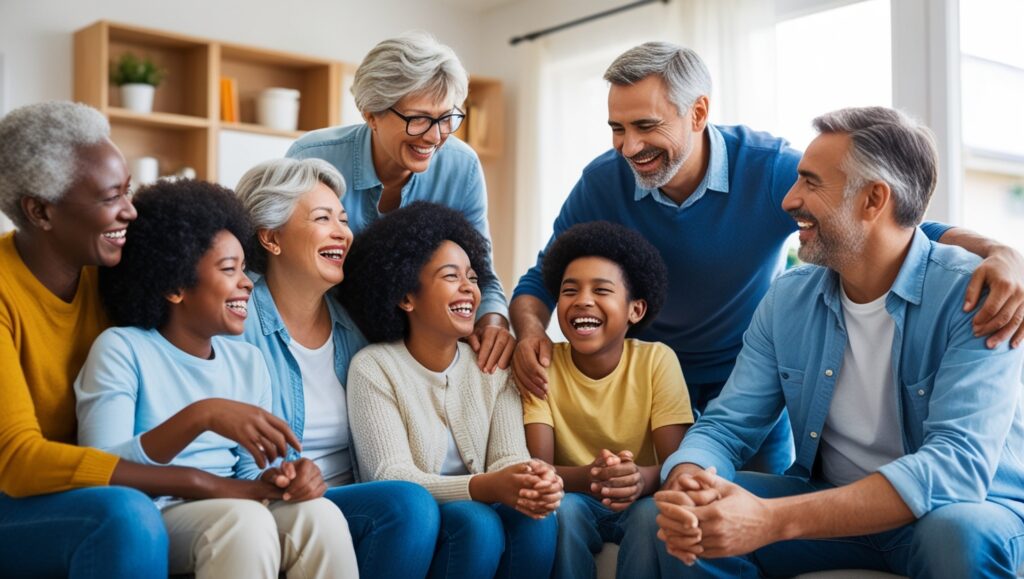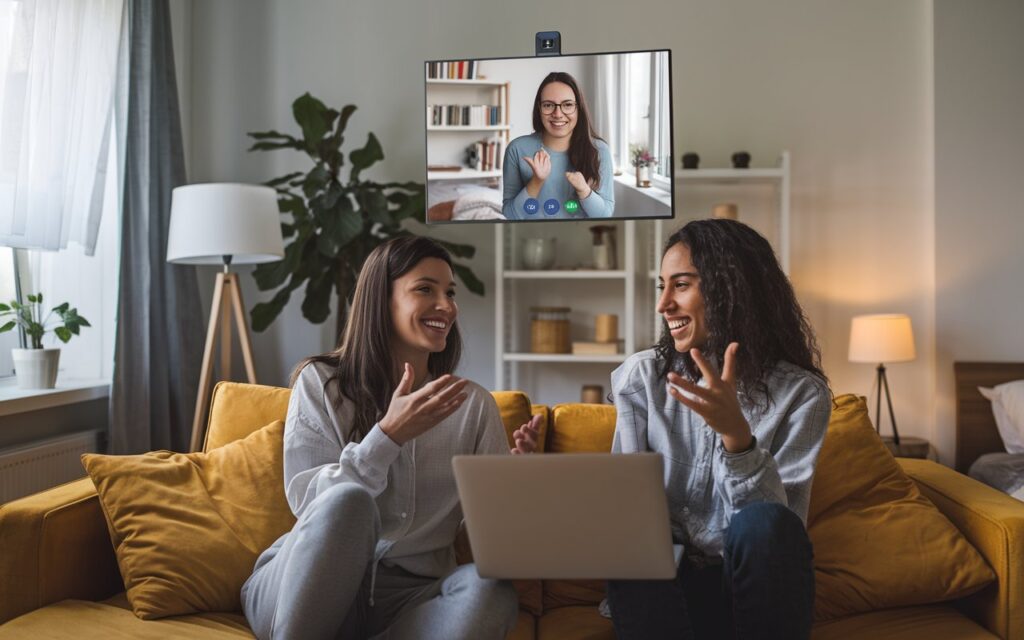How Social Connections Improve Mental Health: A Complete Guide
Introduction
Have you ever wondered why spending time with friends makes you feel happier? Just like keeping up with a workout routine helps your body stay healthy, social connections are important for your mental health. The World Health Organization (WHO) and other top health organizations say that having good relationships helps keep your mind healthy and boosts your overall happiness. When we spend time with others, we feel good, which can lower our stress and make us feel more fulfilled.
Spending time with others helps us build meaningful relationships that give us a sense of purpose and belonging, which are very important for our mental health. Whether we are doing activities in person or online, being with others can make us more resilient and help us handle challenges better.
Understanding Social Connections and Mental Health
What Are Social Connections?
Social connections include all the relationships we have with other people. Just like working on a fitness routine takes time and effort, building strong social relationships does too. These connections include:

- Family members
- Friends
- Neighbors
- Coworkers
- Community groups
- Online friends
Each of these connections helps our emotional and mental health in different ways. They give us support, make us feel understood, and help us feel like we belong. Having a variety of social relationships also helps us understand different perspectives and strengthens our ability to cope with problems.
Why Are Social Bonds Important?
The Harvard Study of Adult Development, which has been running for over 80 years, shows that having strong relationships leads to more happiness and better health. Just like eating the right foods helps your body stay healthy, the National Institute of Mental Health (NIMH) says that strong social bonds help to:
- Lower stress
- Boost happiness
- Make us feel safe
- Help us live longer
Good relationships help us by giving us emotional support, encouraging healthy habits, and reducing stress. Spending time with others can make us feel more secure and lead to the release of oxytocin, a hormone that helps reduce anxiety and builds trust.
Having positive social bonds also helps us make healthier lifestyle choices. People who have a strong social network are more likely to be active, eat well, and avoid unhealthy habits like smoking or drinking too much alcohol.
Health Risks of Social Isolation
Mental Health Risks
Being alone for a long time can have serious effects on mental health. The American Psychological Association (APA) says there are many risks linked to social isolation. To protect your mental health, it’s important to be aware of these issues:
- Higher risk of depression
- More anxiety
- Increased stress
- Feeling lonely
- Poor sleep
- Memory problems
When people don’t have enough social contact, they may have more negative thoughts and feel more vulnerable to mental health problems. Building and keeping social relationships is important to fight these risks. Without social contact, people may start to feel worthless or hopeless, which can get worse over time and lead to serious issues like chronic depression.
People who are socially isolated may also find it hard to take care of themselves. They might struggle to find purpose in their daily lives, which can make feelings of depression and anxiety worse. Being alone can also lead to cognitive decline since interacting with others helps keep our brains engaged and active.
Physical Health Impact
The Centers for Disease Control and Prevention (CDC) also warns that being socially isolated can hurt your physical health. Just like not exercising can hurt your body, lacking social connections can lead to:
- Higher blood pressure
- Heart problems
- Weaker immune system
- More inflammation
- Weight gain
Loneliness can cause stress, which affects your physical health. Keeping social connections is important not only for your mental well-being but also for your physical health. Being alone for a long time can increase cortisol levels, leading to inflammation that affects your heart and immune system.
Studies show that people who are socially isolated have a higher risk of developing chronic health conditions like high blood pressure, diabetes, and obesity. Without positive social interactions, people might not feel motivated to stay physically active, leading to unhealthy habits and poorer health.
Benefits of Strong Social Connections

Emotional Benefits
The Mental Health America (MHA) lists several emotional benefits of having strong social ties. Together with regular mindfulness practices, having strong social relationships can:
- Make you happier
- Help you manage stress better
- Help you recover from tough times
- Boost your self-esteem
- Make you feel supported and secure
Having strong social relationships helps protect us from stress, making it easier to face challenges and feel more stable overall. Emotional support from people we trust can help reduce feelings of loneliness and fear, especially during difficult times.
Social connections also give us a chance to share our thoughts and feelings openly. Sharing and feeling understood is very important for emotional health. People who feel connected to others are also more likely to be motivated and energized to go after their goals, which gives them a sense of purpose.
Cognitive and Physical Benefits
Research from Johns Hopkins University shows that having strong social connections can:
- Improve thinking skills
- Help you live longer
- Lower the risk of dementia
- Improve memory
- Help you sleep better
Interacting with others keeps the brain active and helps improve thinking skills. Emotional support from meaningful relationships also reduces inflammation and improves physical health. Social interactions often involve activities that need memory, planning, and problem-solving, which keeps the brain sharp.
People with strong social networks also have lower levels of stress hormones like cortisol, which helps improve their physical health. Maintaining relationships often includes physical activities like walking or group exercises, which help keep the heart healthy and improve fitness.
How to Build and Maintain Healthy Social Connections
Tips for Building Strong Relationships
The Mayo Clinic gives practical tips for building and keeping social connections. Just like staying committed to fitness goals, being consistent is important when building relationships:
- Join Community Groups
- Take part in local clubs that interest you
- Volunteer for causes you care about
- Sign up for classes to learn new skills
- Join a sports team to meet others and stay active
Joining community groups helps you feel like you belong and gives you a chance to meet people who share your interests. Being part of these groups can make you feel emotionally fulfilled and help you learn new things or support a cause you care about.
- Strengthen Existing Relationships
- Call friends regularly to stay in touch
- Plan weekly meetups or activities
- Share meals with loved ones
- Offer help and support when needed
Strengthening current relationships means making an effort to show others that you care. Spending time with loved ones helps reinforce these bonds and create happy memories. Small actions, like sending a message or helping out with a chore, can help keep relationships strong.
- Try New Activities
- Start a hobby group with friends
- Join a walking club for exercise and social time
- Attend community events to meet new people
- Sign up for group exercise classes to stay active and make friends
Trying new activities is a great way to make new friends and strengthen existing ones. Learning something new or participating in group activities creates shared experiences that can make bonds stronger and help you meet new people. It also makes interactions more interesting by adding variety to your routine.
Digital Connections

The International Society for Mental Health Online (ISMHO) says online connections can also help support mental health. Just like setting clear goals is important for success, being intentional about online engagement can improve social support:
- Join online support groups for shared experiences
- Use apps like BetterHelp or Talkspace for virtual therapy
- Connect with family and friends through video calls
- Join social media groups that interest you
Face-to-face interactions are often more meaningful, but digital connections can also help build relationships and offer support. For people who live far from friends or family, online platforms are a great way to stay connected, share experiences, and get support. This is especially helpful for those who can’t attend in-person events due to distance or health issues.
Real-Life Examples
Stories from Long-Living Communities
The Blue Zones research group studied areas where people live the longest and found that strong social connections are a big reason why. Here are some of the key findings:
Okinawa, Japan
- People form lifelong social groups called “moai”
- Members meet regularly to support each other
- These groups offer emotional, practical, and financial support
- Sharing good and bad times creates strong social bonds
People in Okinawa have deep social connections through their “moai,” which is like a built-in support network. These lifelong friendships help lower stress and improve life satisfaction, showing how





One Comment